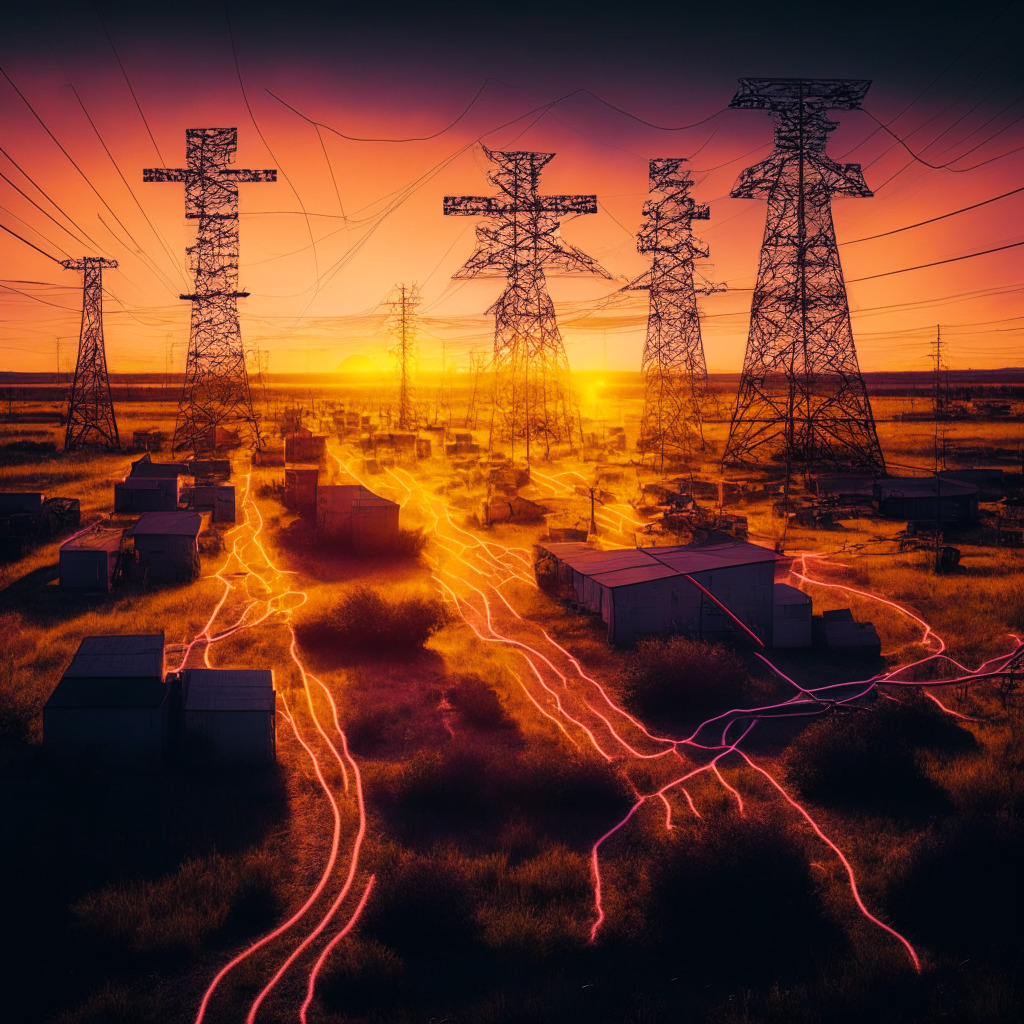In a recent paper published by the Institute of Electrical and Electronics Engineers, it was suggested that the flexibility of Bitcoin mining loads could significantly mitigate power shortages and market disruptions in Texas. With a growing number of mining companies operating in the area, such as Marathon and Riot Platforms, concerns about the strain that cryptocurrency mining may place on the Texas power grid are increasing. According to a survey from Payless Power, 58% of the 727 Texans surveyed expressed concern about the grid’s ability to handle mining activities.
Despite these concerns, Texas politicians like Governor Greg Abbott and Senator Ted Cruz have expressed their desires to make the state more Bitcoin and crypto-friendly. However, the Texas power grid has had difficulty keeping up with surging demand during winter storms and heatwaves. The Electric Reliability Council of Texas (ERCOT) is implementing demand response programs which offer financial incentives to miners to cut power when the grid is facing high system demand. When miners shut down, the power gets redirected to the grid, thus potentially alleviating some of the strain.
As the number of mining facilities quickly increases, proper financial incentives could encourage new facilities to be built in locations with lower carbon footprints and high societal benefits. Payless Power found that 48% of surveyed individuals were concerned about the impact of crypto mining on the power grid. The researchers noted that while the reliability of electric systems with higher renewable penetration is more susceptible to the integration of mining loads, full flexibility at all times can significantly avoid the reliability concerns created by mining activities.
In response to these issues, Texas legislators introduced Senate Bill 1751, which could remove tax breaks and require miners using more than 10 megawatts to register as flexible load operators with ERCOT, the state’s largest energy operator. Both mining companies and blockchain advocates have pushed back against the bill, arguing that Bitcoin mining is “uniquely capable” of addressing the grid’s needs.
Some crypto miners have chosen to set up operations in rural towns, creating economic benefits in generally overlooked areas—an argument often used by proponents of mining legislation. The researchers point out that both location and flexibility are crucial factors for policymakers and grid operators to consider when designing ancillary service programs to take advantage of mining loads and enhance their grid-supporting capabilities.
States across the US are currently wrestling with legislation for and against crypto mining. While Montana, Arkansas, Missouri, and Mississippi have introduced or passed legislation in support of miners, New York has paused all proof-of-work crypto mining operations since November. As the debate on the impact of cryptocurrency mining on power grids and the environment continues, it will be crucial for policymakers and industry experts to work collaboratively to find sustainable and mutually beneficial solutions.
Source: Blockworks




